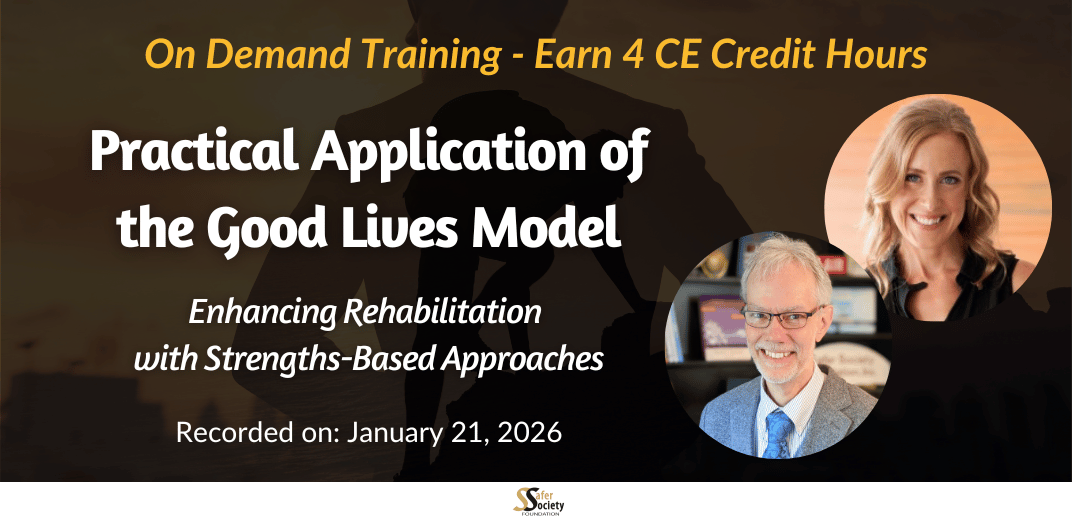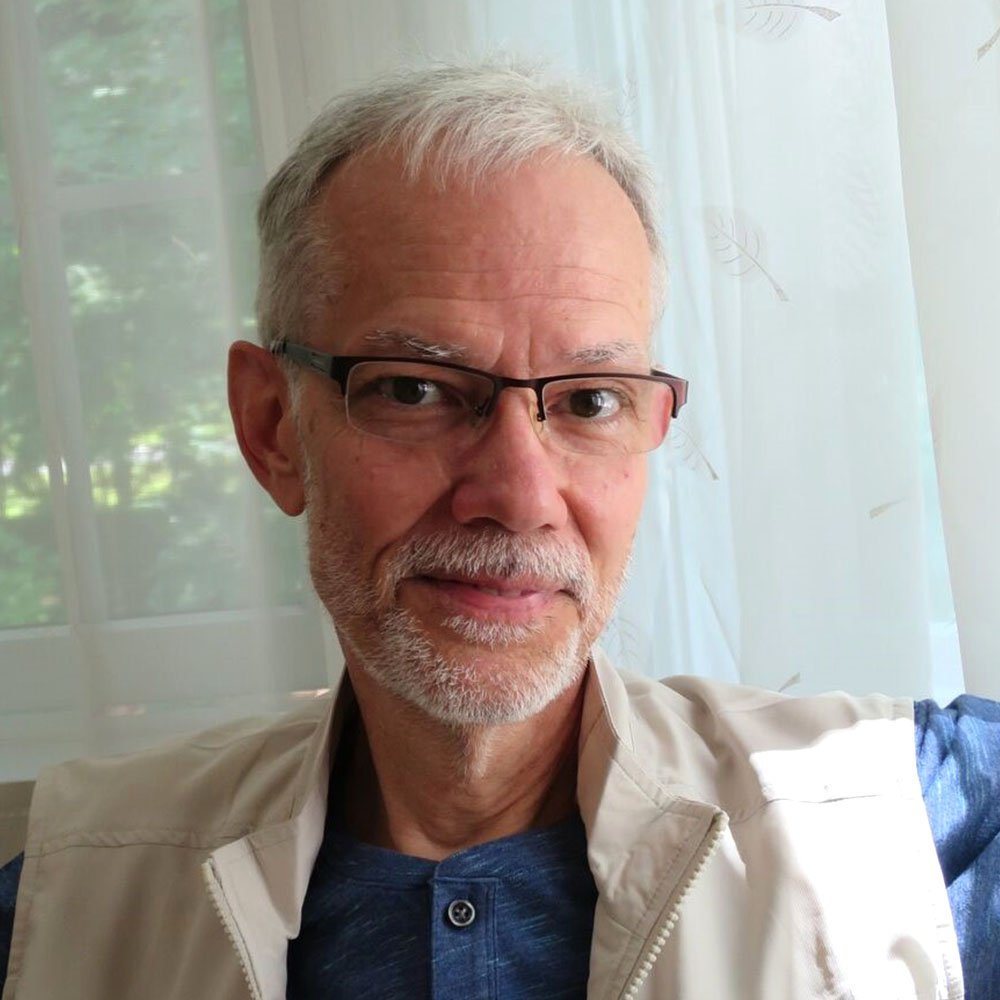
Practical Application of the Good Lives Model: Enhancing Rehabilitation with Strengths-Based Approaches
Already purchased an On Demand training?
Click here to access your Safer Society On-Demand Training Center account.
The Good Lives Model (GLM) is a rehabilitation framework that promotes positive personal goals and strengths as a foundation for reducing risk and supporting long-term behavioral change. By focusing on what individuals need to live meaningful, prosocial lives, the GLM complements traditional risk management approaches in the treatment of people who have sexually offended.
individuals need to live meaningful, prosocial lives, the GLM complements traditional risk management approaches in the treatment of people who have sexually offended.
Preliminary research indicates that, when applied appropriately, the GLM can enhance cognitive-behavioral (CBT) treatment programs that follow the Risk, Need, and Responsivity (RNR) principles. Its emphasis on collaborative engagement has been linked to improved treatment participation—an important factor in program success—while poor implementation may inadvertently increase risk.
Developed and presented by Gwenda Willis and David Prescott, this four-hour online training equips professionals with practical methods for integrating the GLM into treatment programs for individuals who have sexually offended. Drawing on their extensive international experience, including work with programs in New Zealand, Australia, Singapore, Norway, North America, Germany, Italy, and Namibia, they provide clear strategies for embedding the model into program structure, content, and delivery. The training outlines how to conduct GLM-based assessments, design intervention plans, adapt RNR/CBT modules, and address dynamic risk factors such as sexual and general self-regulation using a GLM-informed approach.
While the GLM has gained prominence internationally, its application in practice varies widely, and misinformed use can undermine treatment goals. This training addresses these challenges by showing how to use the model within diverse settings, including prisons, civil commitment programs, and community-based services.
1) Describe the “Primary Human Goods” of the GLM, which are often operationalized as “Good Life Goals”
2) Differentiate between Good Life Goals that are important to the client in general, and those goals directly implicated in their offending behavior
3) Identify four types of obstacles clients may encounter when implementing their Good Life Plan
4) Explain the process of GLM-based assessment and intervention planning
5) Distinguish between the integration and implementation of GLM within treatment programs
Audience
This training is primarily for professionals who work with individuals who have sexually offended or have experienced complex trauma. This includes social workers, psychologists, and clinical counselors.
Content Level
Disclosure
Continuing Education Approval
American Psychological Association (APA)
Safer Society Foundation, Inc. is approved by the American Psychological Association (APA) to sponsor continuing education for psychologists. Safer Society Foundation, Inc. maintains responsibility for this program and its content.
Association of Social Work Boards (ASWB)
Safer Society Foundation, Inc., provider #233, is approved to offer social work continuing education by the Association of Social Work Boards (ASWB) Approved Continuing Education (ACE) program. Regulatory boards are the final authority on courses accepted for continuing education credit. ACE provider approval period: 06/06/2025—06/06/2026. Social workers completing this course receive 4 clinical continuing education credits.
Who's Presenting

Gwenda M. Willis, PhD, PGDipClinPsyc
Dr. Willis is an Associate Professor in Clinical Psychology at the University of Auckland, New Zealand, and Registered Clinical Psychologist. Her research and clinical interests focus on strengths-based approaches to psychological assessment and therapy in forensic/correctional settings, trauma-informed care, and sexual abuse prevention. Dr. Willis provides training and consultation to clinicians internationally, including in the application of the contemporary Good Lives Model of rehabilitation. Dr. Willis has authored or co-authored more than 70 peer-reviewed publications and her research has been widely cited. She led the development and initial validation of the SAPROF-SO with co-authors Drs David Thornton, Sharon Kelley, and Michiel de Vries Robbé.

David Prescott, LICSW, ATSA-F
A mental health practitioner of 40 years, David Prescott is the Director of the Safer Society Continuing Education Center. He is the author and editor of 25 books in the areas of understanding and improving services to at-risk clients. He is best known for his work in the areas of understanding, assessing, and treating sexual violence and trauma. Mr. Prescott is the recipient of the 2014 Distinguished Contribution award from the Association for the Treatment and Prevention of Sexual Abuse (ATSA), the 2018 recipient of the National Adolescent Perpetration Network’s C. Henry Kempe Lifetime Achievement award, and the 2022 recipient of the Fay Honey Knopp Award from the New York State Alliance for the Prevention of Sexual Abuse and New York State ATSA. He also served as ATSA President in 2008-09. Mr. Prescott currently trains and lectures around the world. His published work has been translated into Japanese, Korean, German, French, Polish, and Southern Tutchone. He has served on the editorial boards of four scholarly journals.
